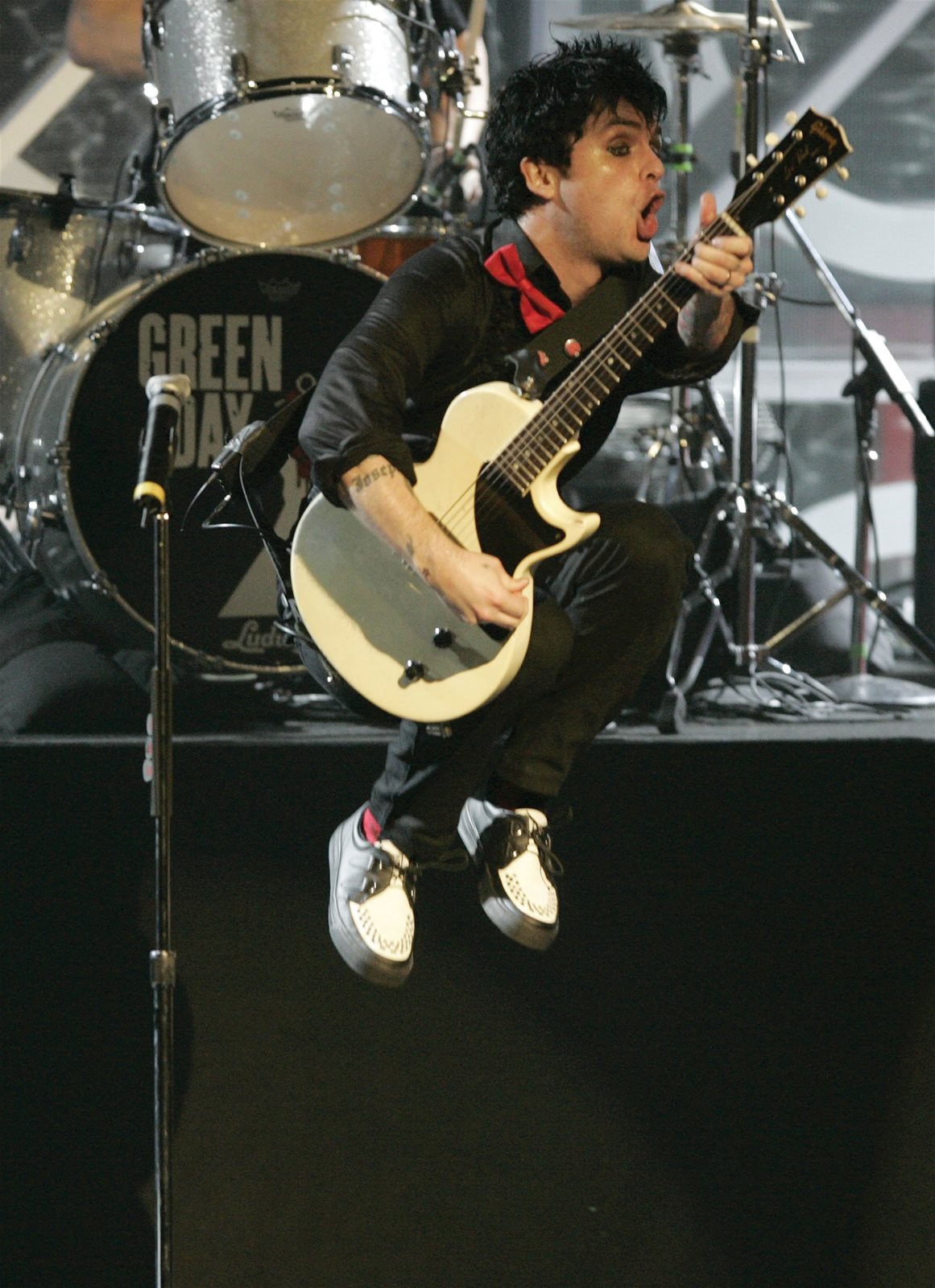
Billie Joe Armstrong — with his trusty Gibson Les Paul Junior — in action at Universal Amphitheatre, Universal City, California, late 2004
CHRIS POLK/FILMMAGIC
Green Day began the 1990s as a trio of snot-nosed Bay Area-punks, but they ended it as one of the biggest rock bands in the world, with three consecutive multi-platinum albums (led by the mega-smash 1994 effort Dookie), a string of hit singles (including the prom-dance staple “Good Riddance [Time of Your Life]”) and numerous sold-out tours.
But at the dawn of the new millennium the band was at a crossroads. Their 2000 effort, Warning, which saw them move in a more pop- and folk-influenced direction, was, at least for Green Day, a commercial disappointment — in part due to an unenthusiastic response from fans, and also the fact that its songs leaked onto Napster weeks before its release. Furthermore, personal relationships between Billie Joe Armstrong, bassist Mike Dirnt and drummer Tré Cool were at a low, with Dirnt admitting to Rolling Stone at the time that “breaking up was an option.” Nevertheless, Green Day soldiered on, and by 2002 were 20 songs into a follow-up album, titled Cigarettes and Valentines. And then the demo master tapes were stolen.